Shopping for a new office chair? These are 5 features to look for
Narrow down your search with these tips
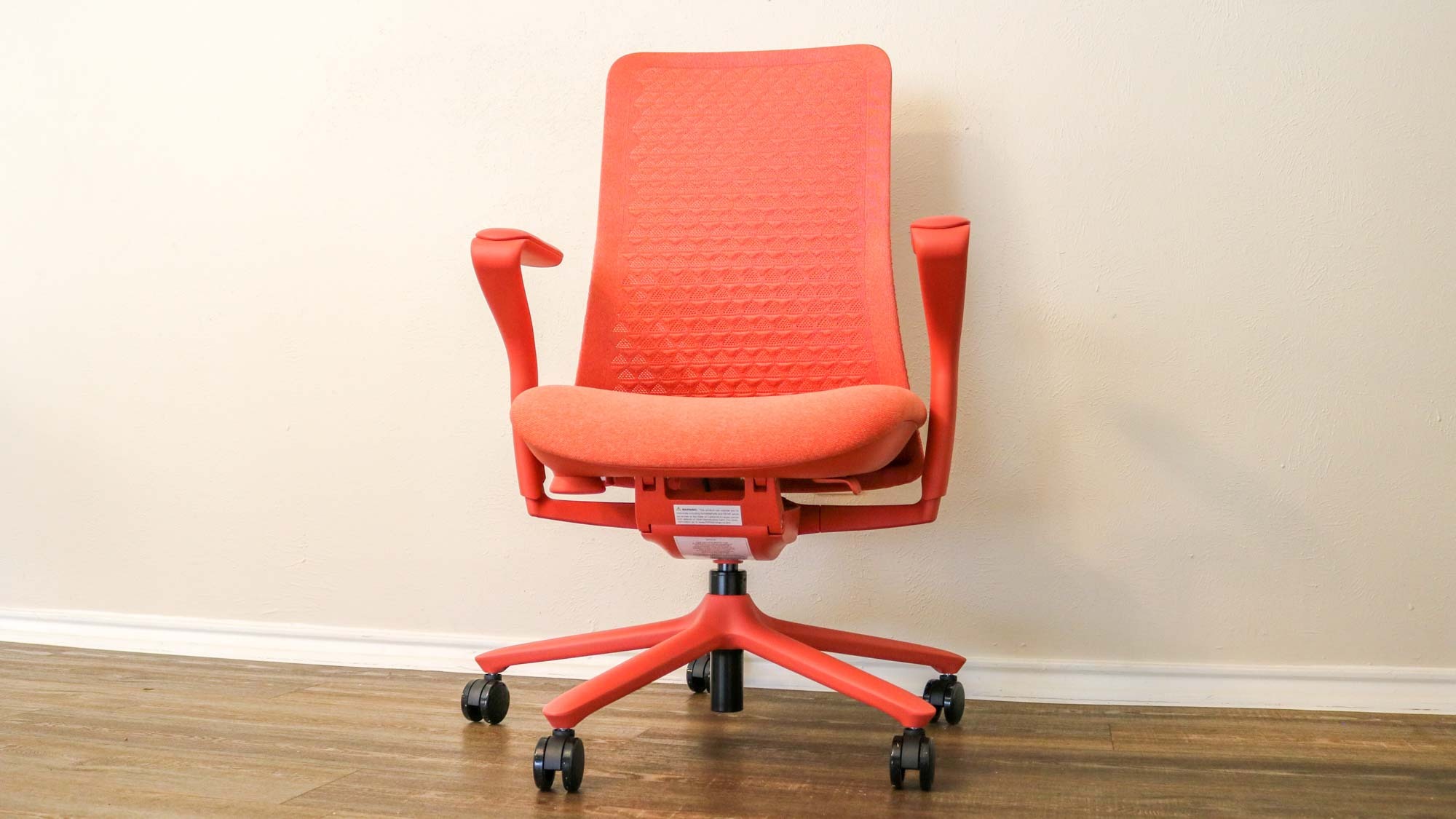
Unlike smartphones and laptops that are upgraded fairly frequently, home office furniture tends to outstay its welcome. That old desk and accompanying office chair have served you well for years, so what’s the point of upgrading?
While a new smartphone or laptop may help you get more done, one of the best office chairs is an investment that — if taken care of properly — will serve you well for years. Whether you’re working from home full time or just like to spend some time in your home office catching up on paperwork after a long day, a new office chair is one of those upgrades where you’ll immediately notice a difference. You can also pair your new chair with one of the best standing desks for a complete home office makeover.
Even if you can only upgrade one piece of your home office furniture at a time, starting with your office chair makes a great deal of sense. A new chair will help you sit up straight and you can finally say goodbye to all that time spent hunched over your desk.
If you’re in the market for a new office chair and you haven’t shopped for one in ages (which is likely the case), here are five features you want to keep in mind while doing so to help ensure that you get the right chair the first time around.
1. Lumbar support
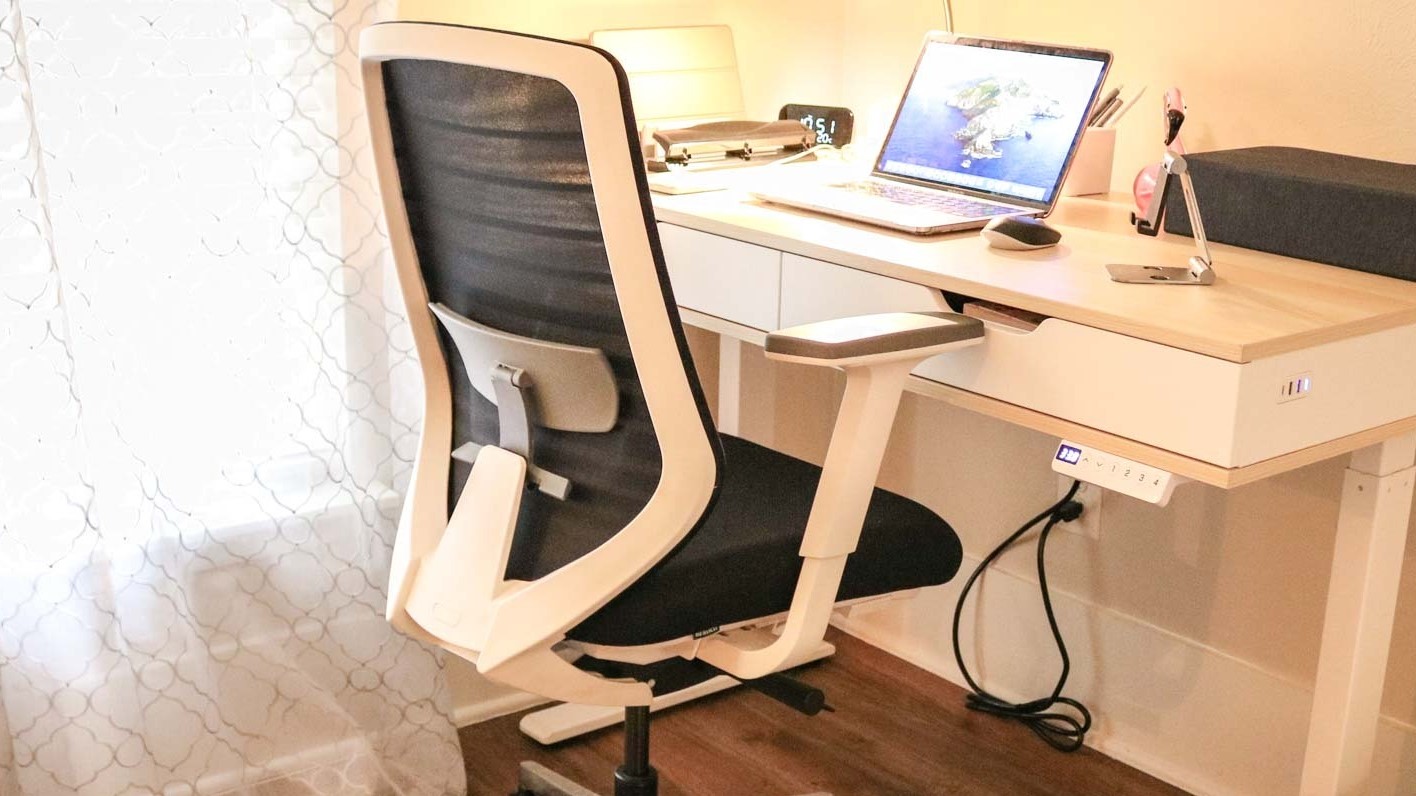
Using an older office chair that’s worn down or one that wasn’t all that good to begin with can lead to back pain. This only gets worse over time, especially if you spend long periods sitting throughout the day.
While you can adjust the height of your office chair to ensure your feet are flat on the floor with your knees bent at a 90-degree angle and make other adjustments to be more comfortable, the importance of lumbar support can’t be overlooked.
The ‘lumbar’ or lower region of your back has a lot more stress placed on it when sitting in a chair than while standing. Over time, if your lumbar region isn’t supported while sitting, this strain can cause stiffness and make you more likely to suffer from lower back injuries. This is why you absolutely want to pick out an office chair with built in lumbar support.
Sign up to get the BEST of Tom's Guide direct to your inbox.
Get instant access to breaking news, the hottest reviews, great deals and helpful tips.
Many office chairs like the Branch Ergonomic Chair pictured above feature a lumbar rest that can be adjusted by reaching behind the chair while seated. This way, you can position it to line up with the small of your back and sit in a straighter, more comfortable position.
2. A headrest
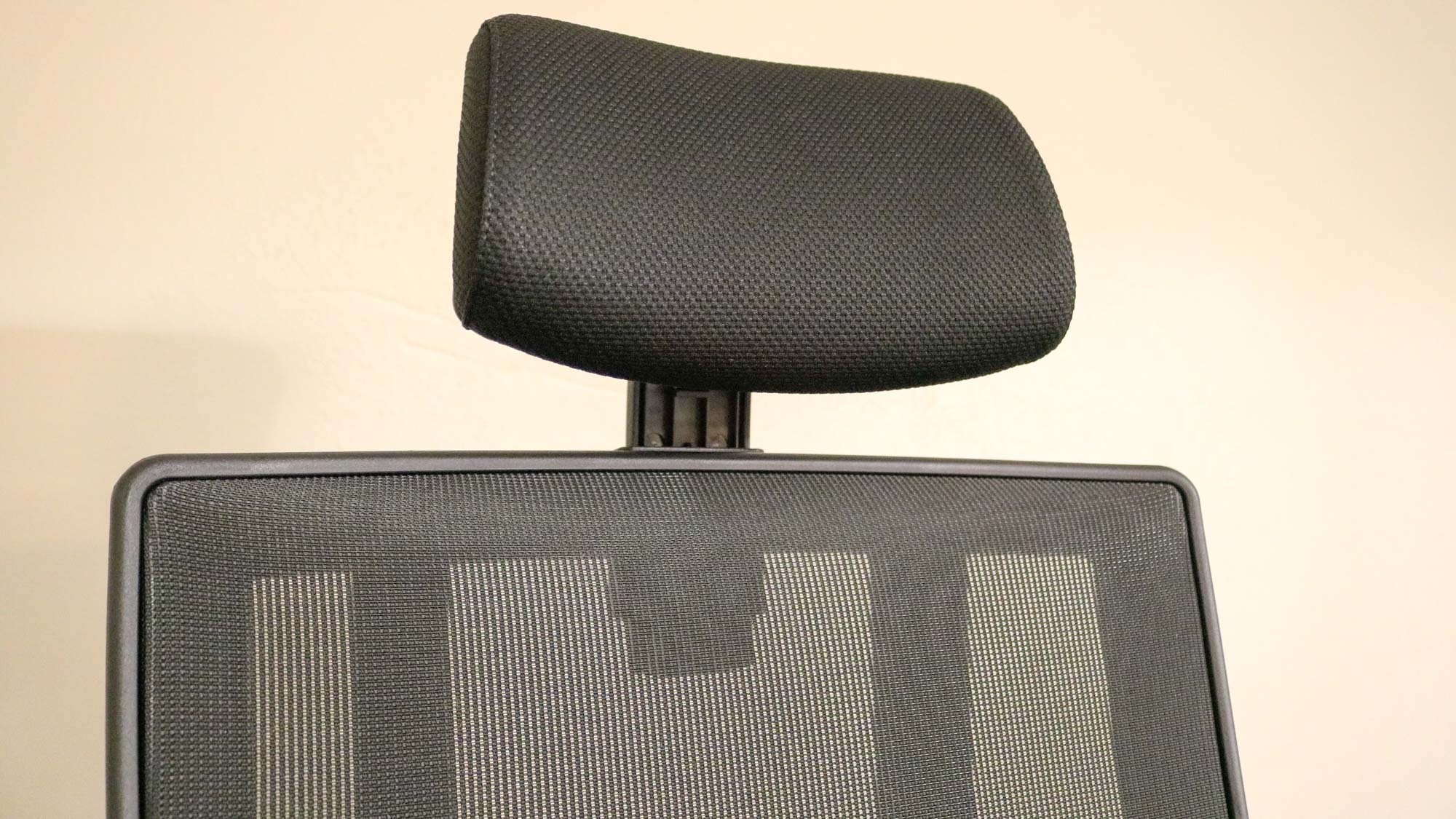
Unlike lumbar support which is considered a must, having a headrest on your office chair is entirely up to you.
Many experts and even the popular furniture company Herman Miller argue that ergonomic office chairs don’t even need a headrest since their backrests are designed to support the natural curvature of your spine.
For instance, if you take a look at our Herman Miller Aeron review, you’ll notice that neither it nor the Herman MIller Embody feature a headrest. Sure, you can add a third-party headrest after the fact but Herman Miller insists you don’t need a headrest with its chairs.
If you’re sitting perfectly straight in your chair all the time, you might not need a headrest but many office chairs allow you to recline and doing so without a headrest can be uncomfortable. Even if you do buy an office chair with a headrest, you can always remove it later if you find that you rarely use it. It’s also worth noting that some office chairs like the X-Chair X2 K-Sport Management come with a headrest that can be tilted towards you so that you can still sit in an ergonomic position while using it.
3. Traditional or rollerblade casters
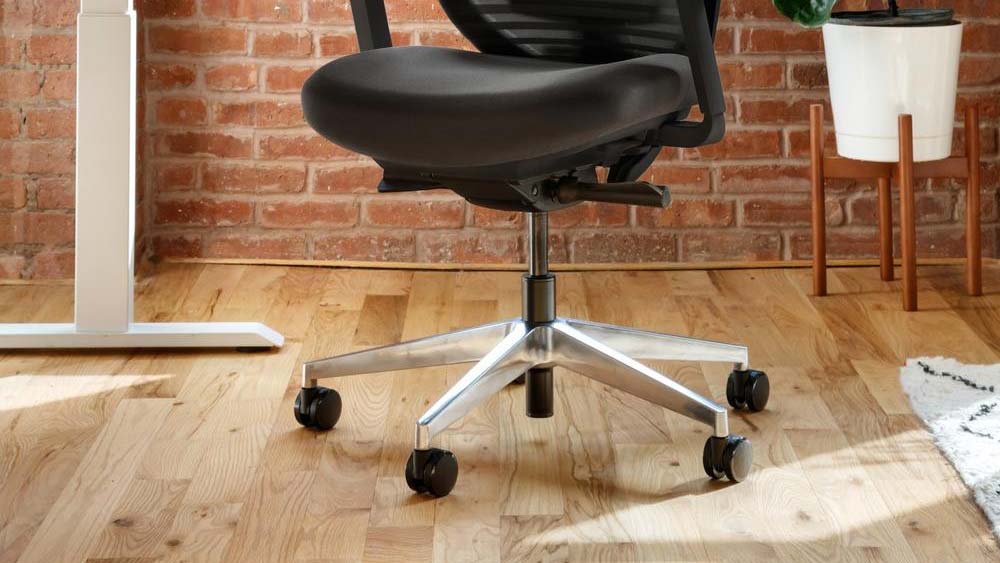
The wheels — or casters in this case — are one of the main things that set an office chair apart from the other chairs in your home. However, the kind you get for your new office chair will depend on the surface you’re using them on.
While office chairs typically come with dual-wheeled casters like the ones pictured above, rollerblade casters have become increasingly popular in recent years. As the name suggests, these wheels look just like the ones you’d find on a pair of rollerblades and they even have ball bearings like skateboard wheels.
If you plan on using your office chair in a room with carpeting, dual-wheeled casters are the better choice. However, if you use these types of wheels on a hardwood floor, you’re more likely to scratch it, especially if any dust or debris gets caught in them.
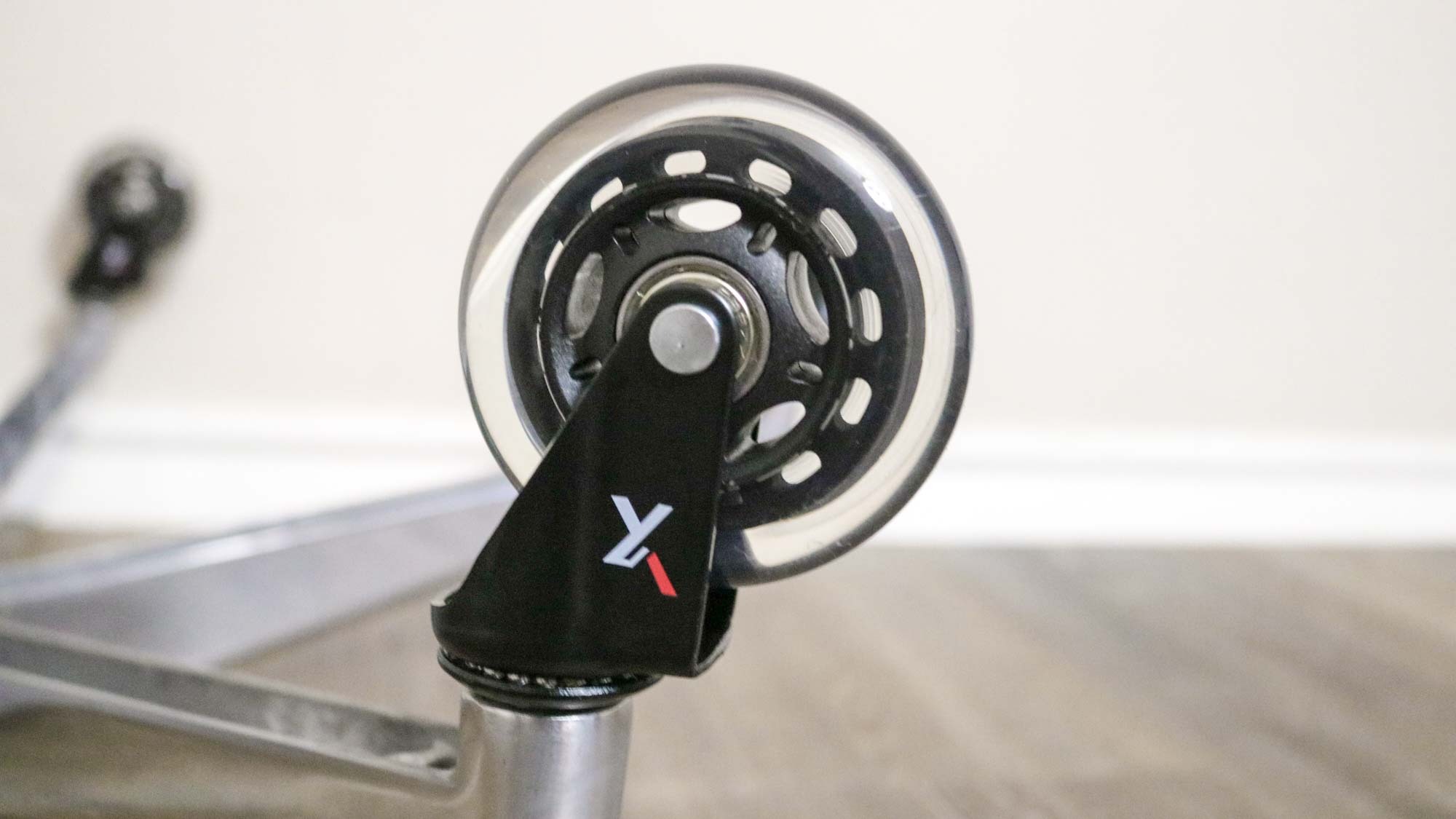
Although you can buy a new office chair with rollerblade wheels for a bit extra, you can also purchase them separately ($37, Amazon) to upgrade your existing office chair. Either way, they’ll give you a much smoother experience on a hardwood floor — not to mention the fact they also look a whole lot cooler.
4. Movable armrests
Besides lumbar support and a good set of casters, armrests play an important role in how you use your office chair. You’re going to want a chair with adjustable armrests that you can comfortably rest your elbows on throughout the day. However, they can also get in the way depending on what you’re doing.
This is why many office chairs now feature movable armrests. When you’re working while sitting at your desk, your armrests are in the perfect position to help you sit up straight. Then, when you’re doing a task that requires a bit more space, you can push them out to the side.
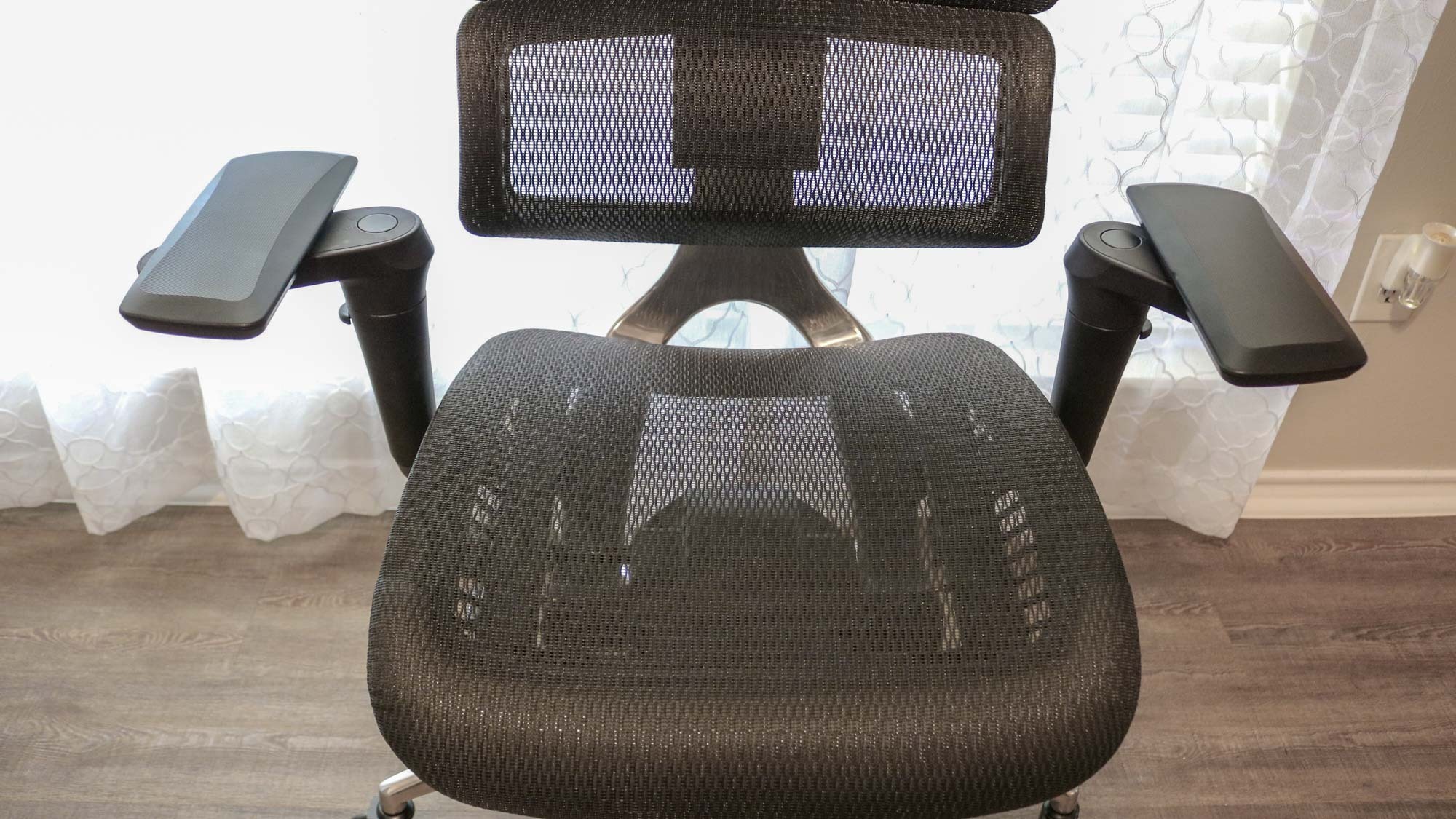
Some office chairs allow you to move their armrests more than others though. For example, the FS 360 Armrests pictured above are an optional accessory for the X-Chair. They can turn a full 360 degrees, but you may not need armrests with this much adjustability.
For most people, armrests that can be turned 45 degrees outward should be more than enough, but it’s good to know that there are options out there just in case you want to play guitar or do something else that requires you arms to be free while sitting in your office chair.
5. A breathable backrest
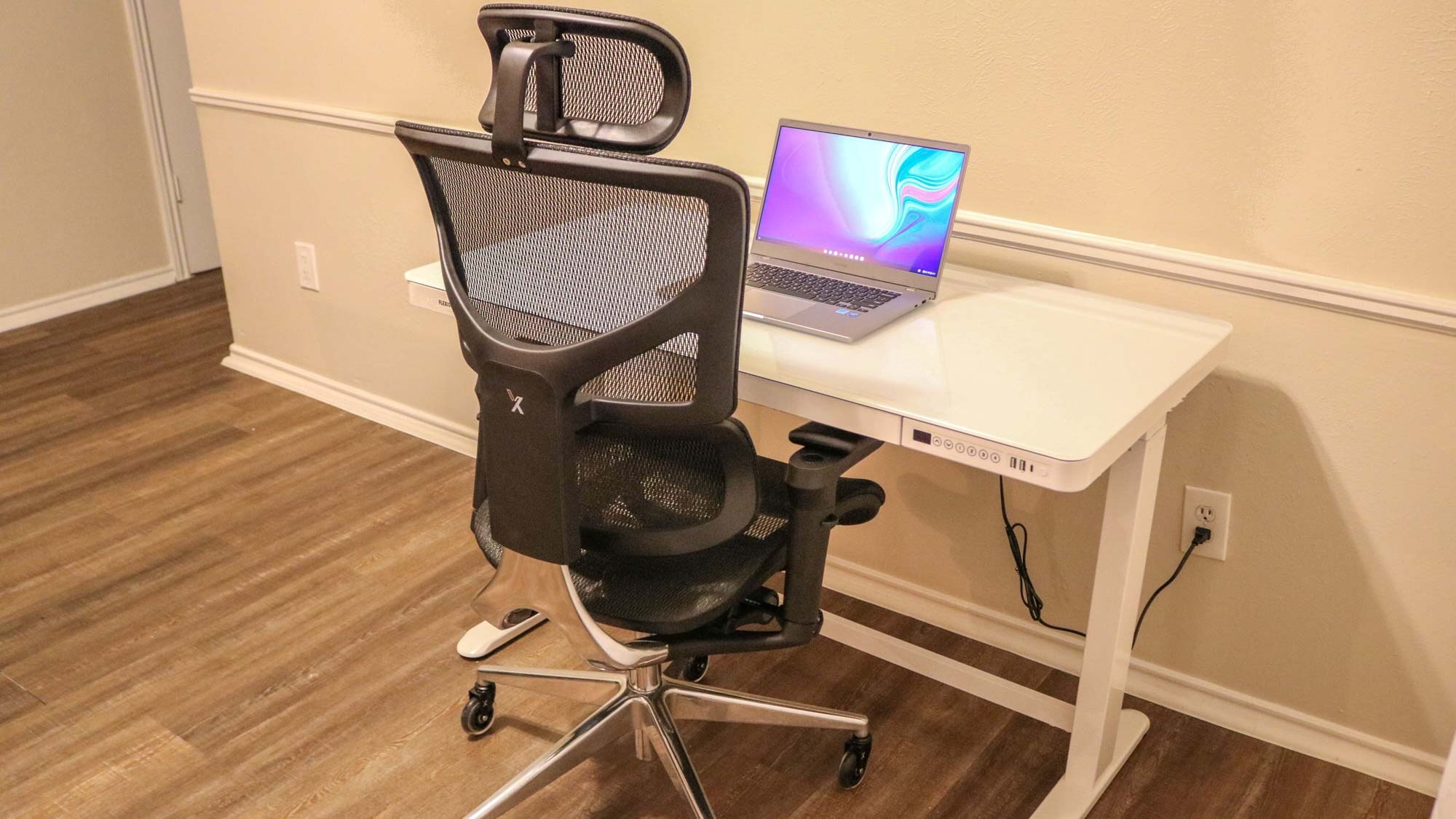
Depending on your environment, it might get quite hot while working in your home office. The last thing you want is for your office chair to get stained with sweat, which is why breathable backrests have become quite popular.
A breathable backrest allows air to flow through the back of your chair to keep you cool while working. However, another added bonus is the fact that they are also easier to clean than a thick, padded backrest. You can easily wipe down both sides of the chair with a damp cloth to keep it clean and looking great.
If airflow is really important to you, you may also want to consider an office chair with a breathable seat. These come with the same benefits as a breathable backrest and designs that combine the two have become a lot more common.
Finding the right office chair for you
Since office chairs typically last between seven to eight years if properly cared for, this isn’t the kind of purchase that you want to rush into. In addition to the features laid out in this article, you also want to take the time to do your own research and find out what works for you.
Fortunately, many home office furniture stores and brands have return policies that give you a chance to use your new office chair for a while before deciding whether or not you want to keep it. Likewise, if possible, it’s always a good idea to go out and test several chairs in person before you pick one out.
While that new smartphone or laptop will certainly seem more tempting, a good, well-built office chair with all of the features you need is the kind of investment you can use for years. Plus, your body will thank you.
More from Tom's Guide

Anthony Spadafora is the managing editor for security and home office furniture at Tom’s Guide where he covers everything from data breaches to password managers and the best way to cover your whole home or business with Wi-Fi. He also reviews standing desks, office chairs and other home office accessories with a penchant for building desk setups. Before joining the team, Anthony wrote for ITProPortal while living in Korea and later for TechRadar Pro after moving back to the US. Based in Houston, Texas, when he’s not writing Anthony can be found tinkering with PCs and game consoles, managing cables and upgrading his smart home.
